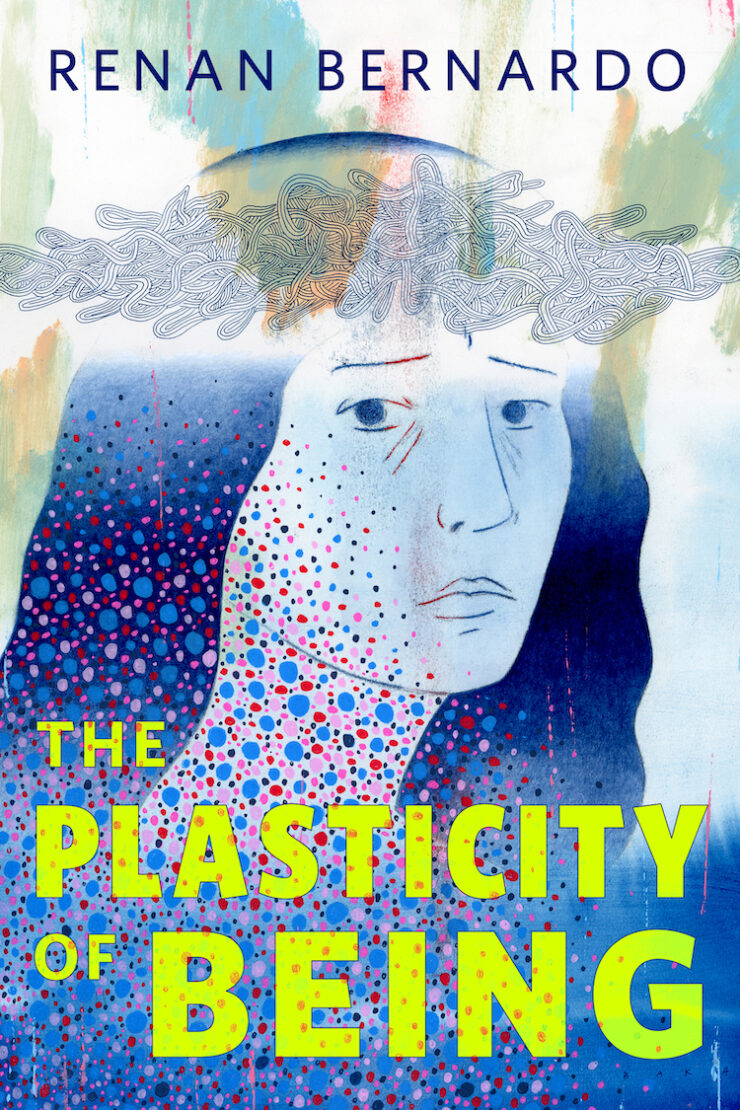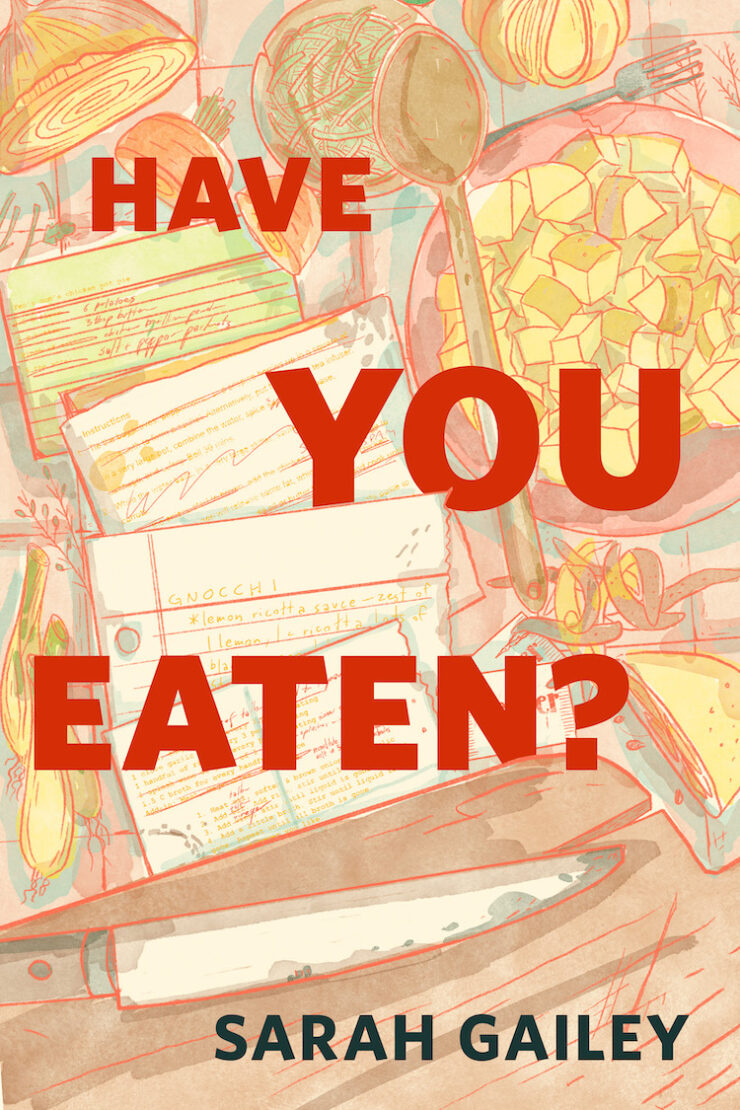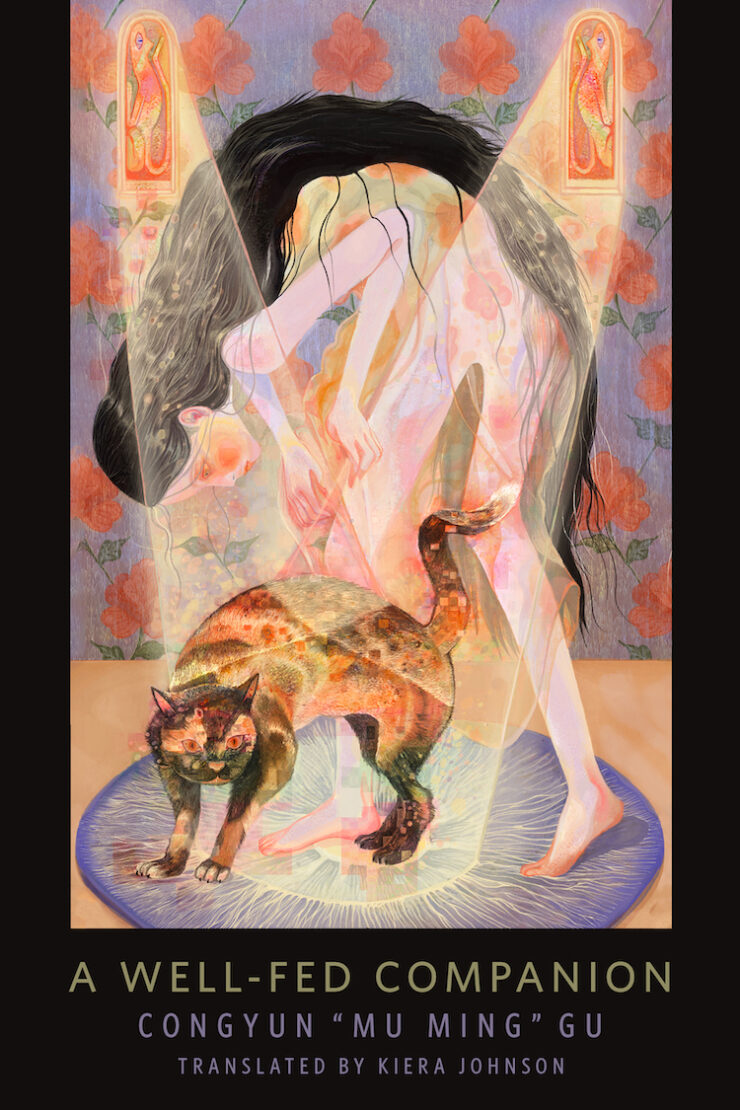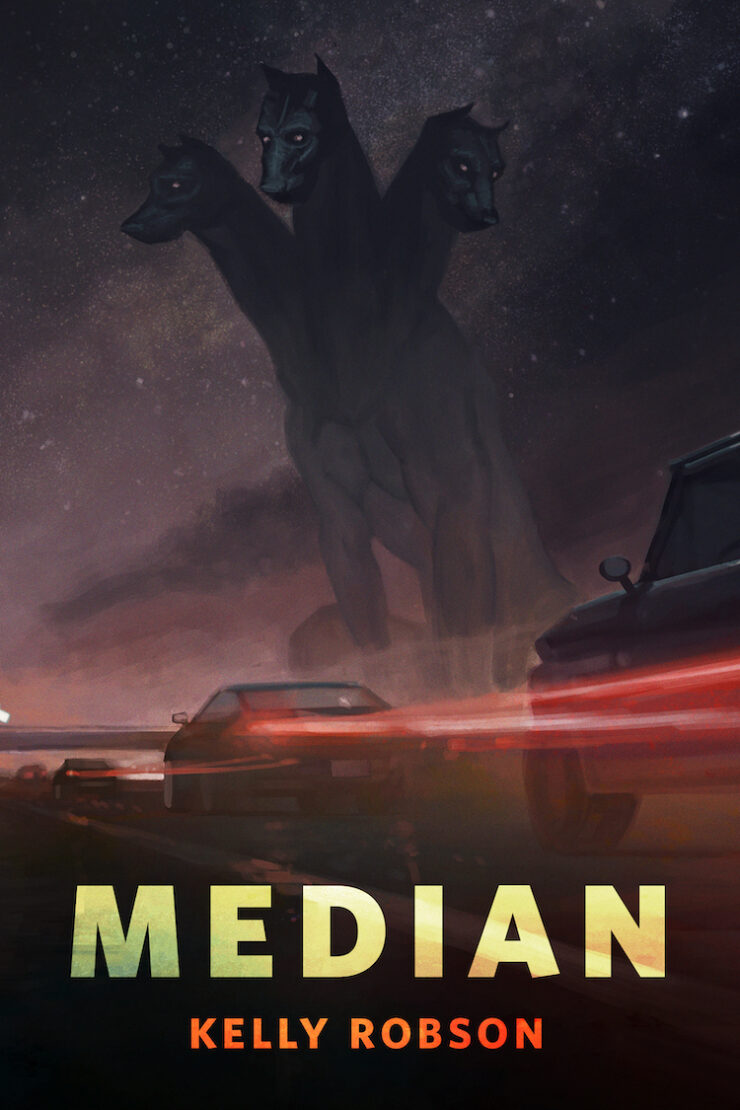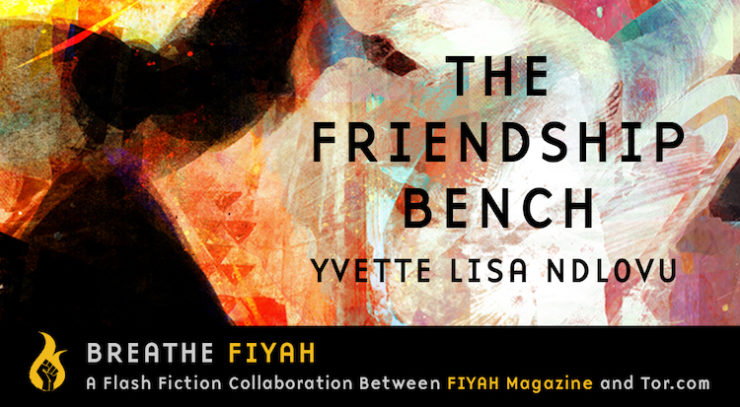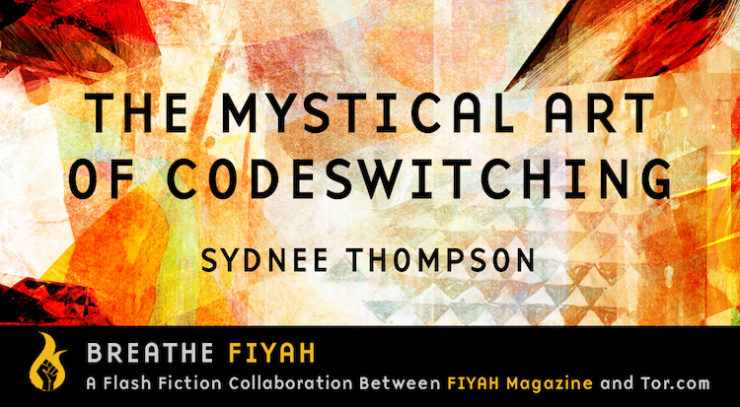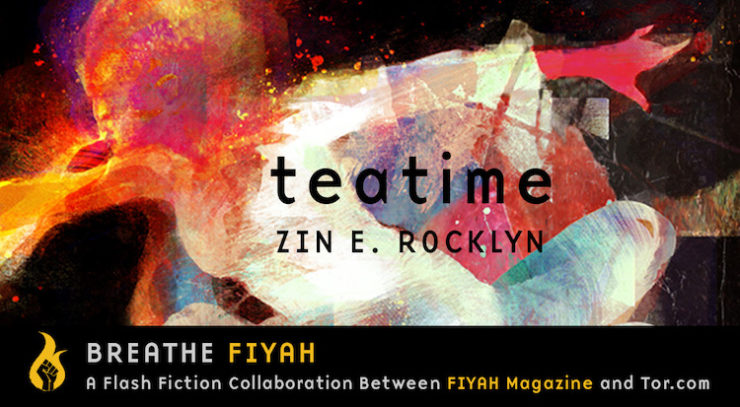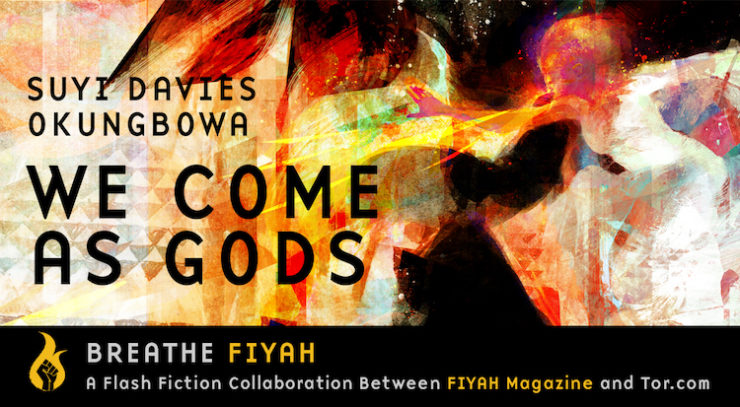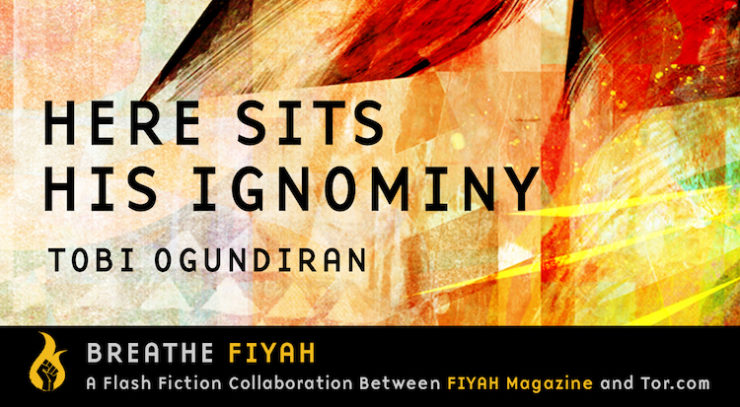In honor of Black Speculative Fiction Month, eight SFF authors share stories that honor forebearers and memories of the past, fight the legacies that underpin the brutalities of the present, and demand a future that’s freer than today.
The stories publish on Tor.com all throughout the morning of October 19. They are collected here.
The young woman is driven to my Healing Hut by a question. She doesn’t need to ask it. Everyone who seeks out my services comes here as a last resort.
As soon as she closes the door, the floor beneath her sneakers morphs into a meadow. She inhales sharply, realizing that she now stands in grassland awash in the afternoon’s yellow glow. She turns back frightened, looking for the door she entered through but finds nothing.
I wave at her from the bench under the shade of a jacaranda tree. The purple jacaranda petals occasionally fall onto my greying afro. The Friendship Bench looks like any other classic park bench yet the girl hesitates to join me. I wave and smile. It does the trick to remind her that I look like I could be anyone’s grandmother. Good. She’ll bring me closer to my quota.
Her name is Khaya. She has come all the way from America. Her life flashes before me like a collage of photographs the moment she steps into the Healing Hut.
“Are . . . are you the N’anga?” she asks in broken Shona. “Makadini zvenyu.”
She struggles through the greeting.
“You can call me Healer, if you like,” I say in English.
Khaya exhales gratefully. She chooses to sit as far away from me on the bench as possible. Most people do.
I know what’s troubling her. I see the two branches of her family tree. An African American father and a Zimbabwean mother. Other people have generational wealth, but for someone like Khaya all she has inherited is pain. The pain is a centuries-old, pallid undulating mass sitting on her shoulders. It is no wonder she slouches so much.
A memory floats in the air as she shifts uncomfortably on the bench. A fight with her father the night before she boarded the plane to Zimbabwe. Her father is part of the anti-Friendship Bench movement.
“It is running away from your problems,” her father had said vehemently as she packed her bags. “Don’t you see that it makes you forget your pain? Your history? It makes you forget the truth of this world. It makes you live a lie.”
“Maybe I just want to breathe sometimes,” Khaya had shot back. “Maybe I don’t want to shoulder all this grief. Maybe I just want a life where history means nothing to me!”
The memory disappears with the wind.
“What is troubling you, my child?”
Memories inundate the air, casting a shadow over the bench. The mass on her shoulders bellows at me, sinking its talons deeper into the girl’s shoulders.
“I want you to unburden my soul.”
“Very well.”
Her eyes widen. “Can you do it? Can you take it all away?”
“Every emotion and sensation, good or bad, that you feel is energy,” I say, assuredly. “A Healer’s duty is to turn the energy that burdens you into something . . . more pleasant.”
I extend my palm. Khaya peers at the device in my hand as if it is a treasure beyond her reach like window shopping at an upscale boutique.
“This is a shock absorber,” I say with a smile. “I will implant it into your temple. The device will absorb your pain, converting it into a new energy called an aura.”
Her fear and doubts prickle against my skin. “First you must choose an aura.”
The menu of auras is listed outside the Healing Hut’s door. It is the first thing one sees before they enter.
“I . . . I . . . don’t know,” Khaya says. “Can you explain what each aura will do to me?”
“If you choose Euphoria, each time you feel sad, angry, or hurt, the shock absorber will turn it into a state of intense excitement and happiness,” I say. “Laughter will make you laugh off every trauma. Patience means you will always keep your cool. With Resilience, you will still feel the pain, but it will make you stronger. If you choose Apathy, you will be indifferent to anything that happens to you.”
Khaya bites her lip. She can hear her father’s voice warning her about the evils of the Friendship Bench. Don’t you see that it makes you forget your pain? It makes you live a lie.
Another memory escapes from her mind and fills the space between us—Khaya watching the grief eat away at her father, grief that could have easily been taken away by this simple procedure.
“What do you recommend?” she asks.
“I cannot make that decision for you.” Her shoulders droop lower at my words. “Most people choose Euphoria,” I offer.
Khaya turns over the options in her head. Apathy is very tempting, even resilience but she sees no joy in them.
“Euphoria,” she says, finally.
I lean toward Khaya, tucking her braids behind her ears. I gently insert the device into her skin through the temples. All she feels is a slight pinch. When I’m done, the top half of the device sits behind her ear. “All set,” I say, leaning away.
The mass on her shoulders blanches until it fades away, melting into a warm sensation. Only one memory remains. Her father teaching her to ride a bike. Khaya falls and scrapes her knee. Her father is by her side immediately.
“You know why your mother named you Khaya?” her father says in a soothing voice. “It means ‘home.’ No matter how far you go, no matter how far you fall, you will always have a home.”
Khaya smiles for the first time since stepping into my Healing Hut. She has the most dazzling smile of all the people that have sought my services.
“I wish you all the happiness,” I say, watching her leave.
The meadow wanes with her receding footsteps and completely vanishes when she is gone. I deposit the cold memories into a jar. My hands tremble more with each new patron, but I can’t stop. One more patron and the masters will be pleased. And I’ll be free.
“The Friendship Bench” copyright © 2020 by Yvette Lisa Ndlovu
Art copyright © 2020 by Eli Minaya
Yvette Lisa Ndlovu is a Zimbabwean sarungano (storyteller). She is pursuing her MFA at the University of Massachusetts Amherst where she teaches in the Writing Program. She will be teaching at Clarion West Writers Workshop in the Fall 2020 and has taught at the Juniper Institute for Young Writers. She earned her BA at Cornell University and was a finalist for a Tin House Young Adult Writer of Color Scholarship in Fall 2019. She was the 2020 fiction winner of Columbia Journal’s Womxn History Month Special Issue and is the co-founder of the Voodoonauts Workshop for Black SFF writers. Her work has been anthologized in the Voices of African Women Journal and Tor.com and FIYAH Literary Magazine’s Breathe FIYAH anthology. She received the 2017 Cornell University George Harmon Coxe Award for Poetry selected by Sally Wen Mao and is a 2020 New York State Summer Writers Institute Scholarship recipient. Her work has appeared or is forthcoming in Columbia Journal, FIYAH, The Huffington Post, Jellyfish Review, and Kalahari Review.


